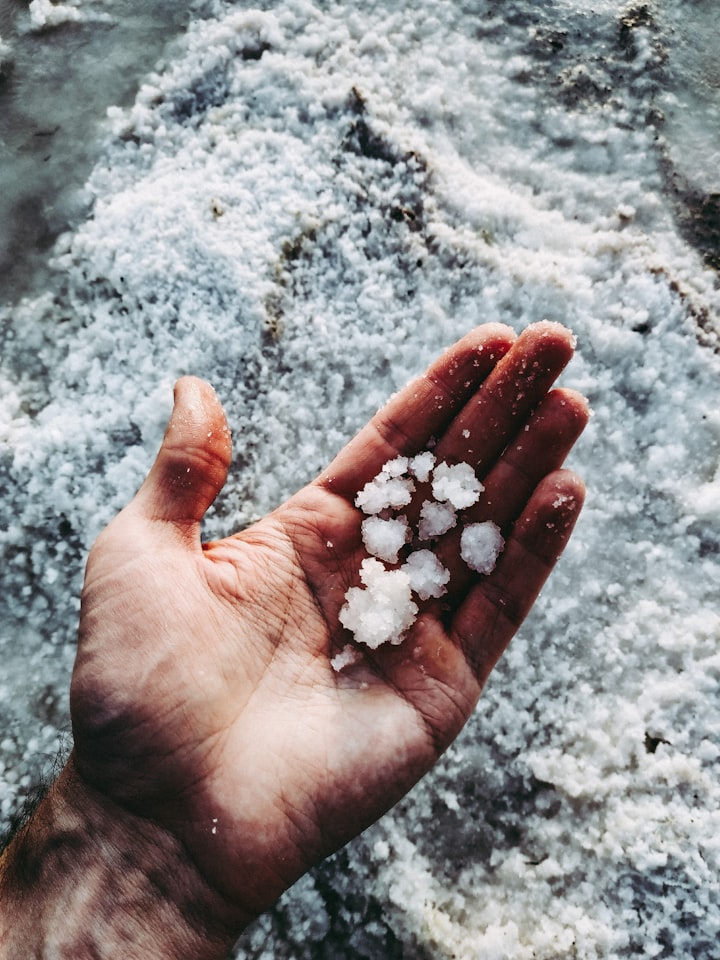
people suffering from hypertension, heart, or kidney failure are now prescribed diets that limit it without completely excluding it.
Salt is essential for the functioning of the body: the minerals it contains, sodium and chloride, participate in the transmission of nerve signals and muscle contraction. The organism of the first men was programmed to save it. Thus, in the event of scarcity, he could draw on his reserves to maintain a good vascular tone and normal blood pressure.
Salt is indeed everywhere. It is used by the food industry to increase the preservation of food, improve its taste, appearance, and texture, and “make weight” thanks to its ability to retain water. It is found in all processed products. However, an excess of salt in the blood can promote edema (water retention), increase the amount of blood circulating in the arteries and increase blood pressure, which causes an overload of work for the heart and potential cardiovascular complications. Salt could also promote the urinary elimination of calcium and therefore osteoporosis.
No consensus on a daily quantity
There is no question about eliminating salt from your diet. As for the recommended values, there is no consensus. When the National Agency for Food, Environmental and Occupational Health and Safety (ANSES) advises reducing daily salt consumption to 8 g for a man and 6.5 g for women and children.
In one person, the consumption of 10 g per day will not have an impact, while in his neighbor, 4 g per day will lead to high blood pressure. Various studies have sown doubt: the first carried out among 101,945 adults in 17 countries showed an increase in cardiovascular accidents for a sodium consumption greater than 6 g per day, but also for daily consumption of less than 3 g (1 ). Another study, conducted on healthy subjects, did not find an association between sodium intake and mortality (2). If there is no reason to exclude salt from your table, there is also no reason to add it to your plate.
Only 50 to 60% of hypertensives would see their blood pressure lowered by lower salt consumption
A restriction of salt intake may be advised. In people who are already hypertensive, excess salt can cause an increase in blood pressure and therefore an increased risk of cardiovascular disease. But, here again, we must qualify. Only 50 to 60% of hypertensives would see their blood pressure lowered by lower salt consumption (3).
To identify them, Professor Ferrières offers his hypertensive patients a low-sodium diet for 3 to 6 months. “Then, he says, if their blood pressure has gone down, I advise continuing the diet. Otherwise, I ask them to limit themselves to 5 g per day by prescribing them at the same time antihypertensives. This is what dietitians call a "wide sodium diet".
Foods to ban The diet is the same in case of heart failure when the heart can no longer do its pumping job to eject blood to the rest of the body.
The kidney is then poorly perfused, it retains water and salt. "To limit edema and weight gain, we recommend a low-salt diet and we combine it with diuretics to compensate for the sodium intake", specifies the cardiologist. In case of kidney failure, if the person undergoing dialysis suffers from water retention, a standard low-sodium diet (1.5 to 3 g of salt per day) is recommended. “We remove condiments (salt, mustard, stock cube), cold cuts, industrial dishes, and very salty sparkling water .”
Preferred products
According to Florence Thorez, foods are naturally rich enough in salt to provide us with the amount we need. We prefer hard cheeses such as Comté, Edam, or Gouda, ham with - 25% salt, fresh or frozen vegetables, products with a sodium content less than or equal to 120 mg per 100 g, and Avoid all processed foods. To enhance the taste of his dishes, we will use spices, lemon juice, aromatic plants (rosemary, bay leaf, parsley, coriander, chervil), onions, garlic, shallots...





Comments
There are no comments for this story
Be the first to respond and start the conversation.